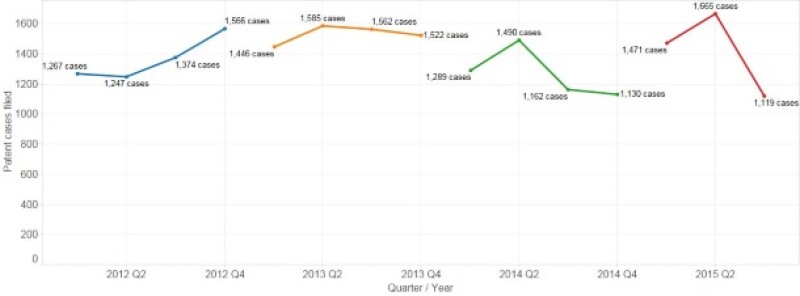Only 1,119 US district court patent cases were filed in the second quarter, down 33% from the record 1,665 cases in the second quarter, an analysis by Lex Machina has revealed.
Patent case filings so far this year are still up on the same period in 2014, but down on that in 2013. The third quarter drop was driven by the Eastern District of Texas, which had 435 cases – a 50% fall from its record peak in the second quarter of 839 cases.
Patent case filings in the District of Delaware increased in the third quarter by 38%, up to 138 from 100 in the second quarter. This is the first quarterly increase for the district since early 2013.
Petitions to the Patent Trial and Appeal Board were also down in the third quarter.
Inter partes review petitions filed fell to 418 from 466 in the second quarter. Lex Machina noted this decrease is “firmly within the established trend going back to mid 2014”.
Covered business method review petitions fell 50% to 20 in the third quarter. Roughly 40 CBMs have been filed a month in the long term.

Trade mark and copyright
Lex Machina divides copyright litigation in the US district courts into two sub-types: file sharing cases and more traditional cases.
Case filings for traditional copyright cases fell slightly in the third quarter to 563 cases – a 1.4% decrease the 571 cases filed in the second quarter. Lex Machina reported the past few years of copyright case filings has been “quite consistent”, with generally between 500 and 600 cases a quarter.
In contrast, new file sharing cases have dropped much more sharply. The 627 cases in the third quarter were a 21% drop from the 797 in the second quarter. File sharing cases remain a majority of copyright cases filed, but this marks the second quarter of decrease in file sharing cases from their peak of 904 cases in the first quarter of 2015.









